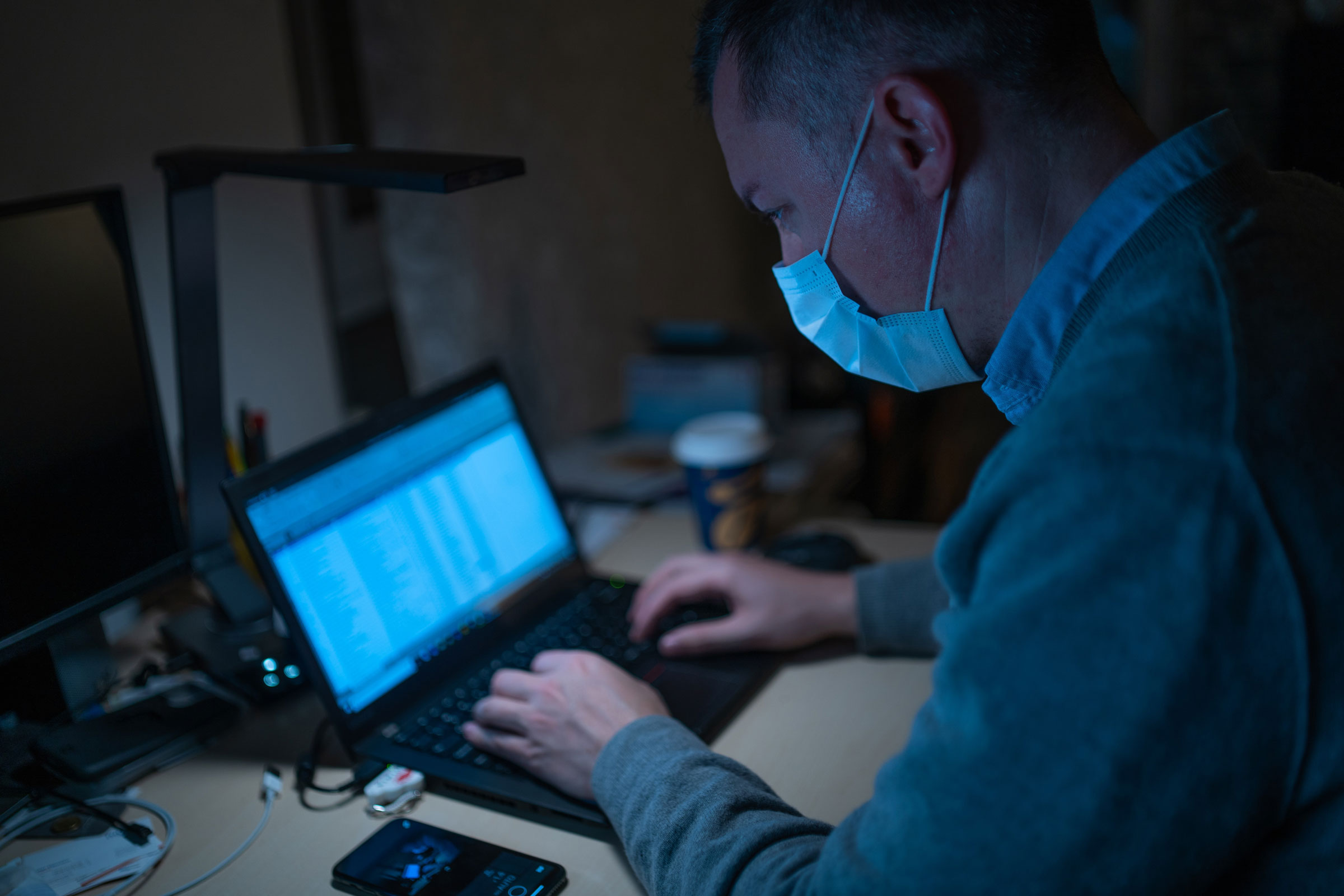My CEO sent a message to our entire company. We are going to be working from home for the foreseeable future because of the Coronavirus. And, I’ve heard of a lot of companies who are following suit.
Before you get too excited…
Most of us are probably thrilled at the possibility of being able to roll out of bed and plop down at the couch in our PJs while still getting paid.
Here’s the thing, though. Working from home can take a toll on you if you’re not careful.
How do I know? Because I did it as a freelancer for four years.
Thankfully, there are some things I’ve learned from my time working at home that have really helped me to stay healthy and productive and kept me from going crazy.
1. RAMP UP THE COMMUNICATION
The clearest form of communication is the kind that you can do while standing in front of someone else actually talking to them. Why? Because to quote a popular country song, “you say it best, when you say nothing at all.”
Non-verbal communication plays a big part in actually making sure what you’re trying to say is being received the way it’s supposed to.
So, when you’re working from home you have to make sure you are putting double the effort into how you’re communicating with your co-workers.
The best thing to do is to OVER communicate. Don’t just send a message in slack. Follow it up with a phone call.
Another good rule of thumb is to play the “what did you hear me say” game.
After every conversation, take a second and make sure that what someone heard you say is what you were actually trying to communicate.
Ramping up communication has the added benefit of helping you not feel so isolated from your co-workers as well.
2. PREPARE FOR INNOCENT MISUNDERSTANDINGS
Now, that you’re not working face to face with people it’s inevitable that miscommunication is going to ramp up a bit as well.
So, rather than react to it, let’s prepare for it.
First thing to do is always assume that someone misunderstood you unintentionally.
Of course, this sounds totally reasonable when we are in a sterile environment looking at this from a 30,000-foot view.
But, when you’ve got deadlines happening and you finishing what you need to finish depends on someone else…misunderstandings can be like tripwires on a battlefield.
So, prepare for it now!
Think about it this way. When we are misunderstood WE ASSUME the other person is going to know we had no intention of hurting their feelings.
So, why not assume for others what we want others to assume for us?
3. HAVE A START AND STOP ROUTINE
If you’re not careful when working remotely you start feeling like you can’t ever relax in your home.
But, there are some things you can do to trick yourself psychologically and make sure there are clear lines between work and play.
The first thing to do is to make sure you’re getting up and getting dressed as if you were going into the office.
Charles Duhigg in his book “Smarter, Faster, Better” talks about how the best C level executives have a mental routine they go through every morning. Thinking about the day ahead of them down to each individual moment.
So, use this as an opportunity to really fine-tune the perfect morning routine.
Use the extra minutes you gain from not having to drive to work as an opportunity to put some healthy things in place before you even get started.
Then when the day is done have a wind-down routine.
4. STAY PRODUCTIVE
One of the easiest ways to get burned out is to feel like you aren’t giving your best to your work.
I know society tends to praise the jobs where we can slack off while going unnoticed and still get paid well.
But, the reality is that we need to feel like we are making a valuable contribution to our workplace if we’re going to stay happy.
There are a few things I’ve found that really help me to stay focused when I’m working remotely.
First the easy list:
Don’t turn on your television. If your kids are home with you, find a separate room to work in. Or at the very least, make sure they know when it’s okay to interrupt you and when it’s not.
Finally, track your time.
I use an app called Toggl to track what I’m doing.
It helps me to understand where I’m putting my time. Then I can look back and see if something was a time hog and determine whether or not I actually want to spend that much amount of time on that particular task.
Tips to stay focused and productive while you work from home:
There are a lot of great benefits to working from home. But, if you’re not careful, it can take a toll on your mental health.
It’s so important to make sure you work even more intentionally on your communication with your teammates. You have to have a schedule and routine that you implement to keep your home from feeling like an office 24/7.
You also have to go outside every once in a while and take a break from looking at your fireplace. And, last but certainly not least you have to double down on staying efficient and productive by doing things like tracking your time and removing things that easily distract you.
What about you? What do you do to make sure working from home doesn’t start to take a toll on your mental health?
Leave a comment and let’s talk about it.


